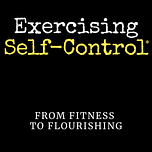Here’s a scenario: Hypothetical Jody has meditated daily for five years, building a reputation for patience and wisdom. Yet today, overwhelmed by work stress, she explodes at her eight-year-old daughter over spilled juice: “You’re just so careless! Can’t you do anything right?”
Is Jody “not really patient”? Has she revealed her “true character”? Or is something else happening here?
The traditional view says Jody’s outburst reveals who she really is underneath the calm exterior. But what if we’ve been thinking about virtue entirely wrong? What if virtue isn’t something we can be, but something we can only choose, moment by moment, decision by decision?
Photo by Vitaly Gariev on Unsplash
This isn’t just philosophical hair-splitting. How we understand virtue determines everything: how we judge ourselves after moral failures, how we approach personal growth, and whether we believe genuine change is possible.
Hey there. It’s me, Kore. And you’re listening to Exercising Self-Control: From Fitness To Flourishing.
What is it that makes an individual virtuous?
It’s not their circumstances. Not their wealth, their physicality, or their reputation. None of these is in their power. So what is it?
Is it the self? Epictetus, the ancient Stoic teacher, suggested the essence of the self is prohairesis (i.e. the self is the faculty of volition or choice). Make certain choices often enough and it becomes a pattern, a habit, a conditioned state of being. And judging the demonstrated state of that being going forward in time we conclude “that individual is virtuous.”
Yet the possibility remains that “virtuous” individual could make a vicious choice. That could be due to ignorance or a deliberate vicious choice. Either way the pattern of virtue is broken.
It’s only choice, then, that can be virtuous. The self in the moment of choosing. Character, as a pattern of behaviour across time, is only an indication of virtue. It’s not the final answer in any moment of choice.
Doesn’t It Go Deeper?
Critics might argue that consistent patterns reveal something essential about character, something deeper than mere choice. Perhaps ingrained neural pathways or personality traits? While neuroscience shows that repeated behaviours do create neural conditioning, the capacity for conscious direction of behaviour change persists. ‘Character’ is simply describing a set of behaviours. Minus choosing to consistently live up to a set standard the ‘character’ or ‘personality trait’ would not exist. It’s the individual choices that matter.
So where’s the progress toward greater virtue? If we’re not developing a finer character how do we progress? It’s in the repeated choosing of virtue in the moment. Make the choices consistent with your highest values often enough and you’ll find the choices making themselves. That is, they’ll become automatic, habitual, conditioned. That takes practice. Yet the choice remains.
Is This A Paradox?
This creates an apparent paradox. If virtuous choices become automatic, are they still choices at all? The answer lies in understanding that automaticity operates at different levels of consciousness.
When a skilled musician plays a complex piece their fingers move ‘automatically,’ yet they remain capable of conscious direction: changing tempo, adding expression, or stopping entirely. Similarly, moral habits create a default response but the capacity for conscious choice remains intact.
The virtue lies not in the habit pattern itself but in the ongoing consent to that automaticity. Each moment we don’t consciously choose to change our virtuous habits, we are implicitly choosing they remain in place. The choice becomes subtler, moving from “Should I be honest?” to “Do I maintain my commitment to honesty?” This shift represents moral progress. It’s not the abdication of choice but its refinement.
As we’ve explored in previous episodes, our conditioned behaviours, running non-consciously, have a speed and a power that overcomes our conscious ability to choose. When these behaviours are triggered by the circumstances we, as the volitional Choosing Self, are taken offline, so to speak. It’s only when the conditioning has run its course that executive function is back online and we can make conscious choices again.
Interestingly, this makes virtue both more reliable (through habits developed by our past deliberate choices) and more authentic (through our continued choice to maintain the conditioned behaviour). We may not be consciously deciding what to do in the moment but we have set the stage for the best response we can imagine in our “conscious absence.” We then judge the quality of that non-conscious response and make adjustments as necessary: reinforcing consistency or redirecting inconsistency with our standard of excellence in those circumstances.
Understanding this paradox transforms how we approach virtue in daily life. Instead of focusing on character, the common strategy, we put our attention and effort on the moment of choice. We let our character develop as it will. Others will come to their own conclusion about our character. The best we can do is exercise virtuous self-control in the moment of choice. In doing that consistently we’ve done all we can.
Practical Implications of Momentary Virtue
How does this change our approach to moral development?
1. It Reframes Justice And Judgment: If virtue exists only in the moment of choice, this fundamentally changes how we judge ourselves and others. A person who has acted virtuously for decades hasn’t accumulated a store of virtue. They’ve simply demonstrated a pattern of choosing well. Their next choice matters as much as their first.
This perspective offers both humility and reasonable caution (past virtue doesn’t guarantee future virtue). It also offers both hope and encouragement (past vice doesn’t condemn future choices).
Consider someone struggling with anger. Traditional character-based thinking might say, “I’m an angry person” or “I need to become tolerant.” But viewing virtue as momentary choice reframes this: “In this moment I can choose tolerance.” The focus shifts from changing one’s essential nature to making one choice well. Then another; then another.
2. It Transforms How We Handle Moral Failure: When someone acts viciously after a long pattern of virtue it’s common to hear “They’ve shown their true character” or that “They’ve fallen from grace.” But if virtue exists only in choices moral failure becomes data about one choice, not a revelation about essential character. This doesn’t minimize the impact of harmful actions but it preserves the possibility of virtue in the very next moment.
This has profound implications for forgiveness, both of others and ourselves. Instead of asking “Can this person change?” we ask “Can this person choose differently next time?” The answer is always “Yes” because each choice stands alone.
3. It Calls For A Redesign Of Moral Education: Traditional virtue education focuses on character building (i.e. developing traits like courage, honesty, patience). But if virtue lies in momentary choice moral education should emphasize choice recognition and choice-making skills. This means:
Teaching people to recognize moments when virtue is at stake.
Developing the capacity for conscious choice under pressure.
Practicing the specific cognitive moves that lead to virtuous decisions.
Understanding that every choice happens in a context, both independently and as part of a pattern.
Instead of saying “Be honest,” we might say “Notice when honesty is at stake, understand what honesty requires in this situation, and choose to act on that understanding.” In other words we make the skill of living our values clear and objective, not vague and abstract.
Check out Making Your Values Actionable for more detail.
4. It Changes Practical Daily Application: This philosophy changes how we navigate daily moral decisions:
In morning reflection: Instead of asking “What kind of person do I want to be today?” ask “How will I recognize and respond to choices as they arise?”
This is done by writing Intention Statements and implementing The Discipline as I share in Bridging The Gap Between Intention And Action: Part 1 and Part 2.
In conflict: Rather than thinking “I’m not the type of person who gets angry,” recognize “Right now I’m choosing how to respond to this circumstance.”
For more detail on this check out Choosing Your Experience Whatever The Circumstances.
After mistakes: Replace “I’m such an impatient person” with “I chose impatience in that moment. What will I choose next?”
This is The Discipline again from Bridging The Gap Between Intention And Action: Part 2 of 2
Before challenges: Instead of “I hope my character holds up” prime your mind with the Stoic Strength Reserve Clause “Whatever happens I exercise virtuous self-control in the moment of choice.”
5. It Has Implications For Progress: Progress in virtue becomes less about transforming your character and more about increasing the consistency and quality of your choices. The metrics change:
From “How patient am I?” to “How often do I choose patience when it matters?”
From “Am I honest?” to “Do I recognize opportunities for honesty and respond appropriately?”
From “What are my virtues and vices?” to “What behaviour patterns emerge from my choices and is that what I want going forward?”
The Choice Before You
Returning to Hypothetical Jody, standing in her kitchen, looking at her daughter’s tear-filled eyes. In the traditional view, she faces an identity crisis: “Am I a patient person or an angry one? Have I been deceiving myself about who I really am?”
But through the lens of momentary choice Jody faces something simpler and more powerful: “What is the virtuous choice, right now?”
She can’t undo her harsh words. But she can choose her next response:
Apologize genuinely.
Acknowledge her mistake.
Model how to handle poor choices for her daughter.
In doing so she doesn’t redeem her character. She simply, and more profoundly, makes a virtuous choice.
This is the powerful shift waiting for all of us. Stop asking “What kind of person am I?” and start asking “What will I choose in this moment?” Stop trying to become virtuous. Instead, choose virtue.
This is the straight path of personal excellence in every moment of choice.
The person you were five minutes ago, five years ago, or five decades ago has already made their choices. They’re done. You, the conscious, choosing self in this moment get to decide what you will do next.
Your character will take care of itself. It’s simply the pattern that emerges from your choices over time. Others will form their own opinions about who you are based on what they observe. You can’t control that.
But this moment? This choice? This is all yours.
What will you choose to make of it?
That’s it for today. Catch you next time.











